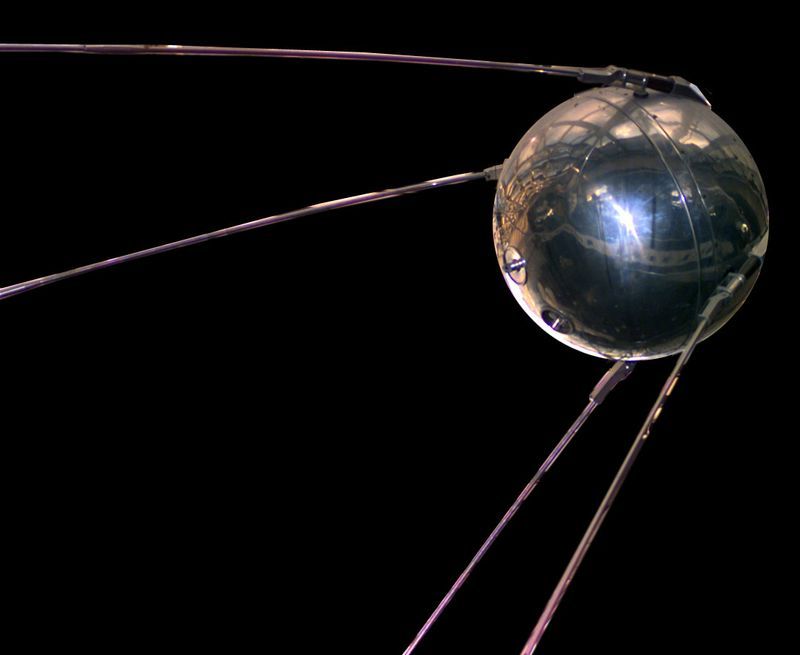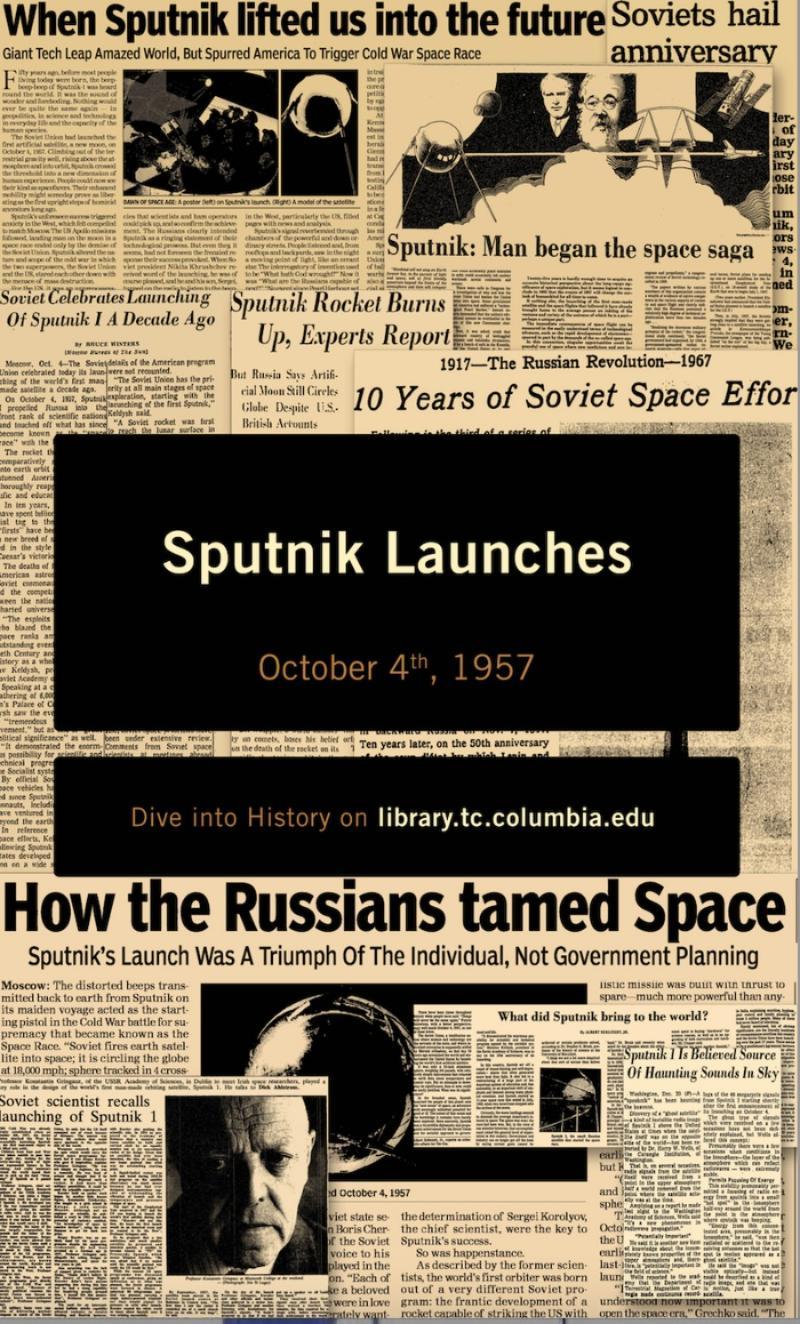Today In History: Sputnik Launches

On October 4th, 1957 the Soviet Union successfully launched the world's first artificial satellite which orbited the Earth in roughly 98 minutes for about three weeks before its batteries gave out. Known as Sputnik, the Russian word for natural satellite, it then silently orbited before falling back into the atmosphere on January 4th, 1958. Sputnik was monitored by radio operators throughout the world.
How could a satellite which was about the size of a beachball and weighed 184 pounds, make such a significant impact on history? Sputnik provided information about the density of the upper atmosphere and the radio signals offered data on the ionosphere, the layer of Earth's atmosphere that extends 50-600 above the surface our planet. More importantly, it marked a new era of political, military, technological, and scientific growth and developments -- many would say, the "Space Race" which was part of the Cold War (1947-1991), a period of geopolitical tension between Eastern Bloc countries (Soviet Union and allies) and the Western Bloc (Unites States and allies).
Read more below and also check out NASA's, "Sputnik and the Dawn of the Space Age", which includes a chronology, audio-video, books, and documents on this important event and its long-lasting influence.
The following articles are drawn from Proquest Historical Newspapers, which informs and inspires classroom teaching and learning.
- Sputnik Rocket Burns Up, Experts Report: But Russia Says Artificial Moon Still Circles Globe Despite U.S. British Accounts. (1957, Dec 02). The Sun (1837-)
- Sputnik 1 Is Believed Source Of Haunting Sounds In Sky. (1957, Dec 21). The Sun (1837-)
- Wilford, J.N. (1967, Oct 04). 1917 The Russian Revolution 1967: 10 Years Of Soviet Space Effort Soviet Poised For New Exploits In Space 10 Years After Launching First Sputnik. New York Times (1923-)
- Winters, B. (1967, Oct 05). Soviet Celebrates Launching Of Sputnik I A Decade Ago. The Sun (1837-)
- Sehlstedt, A., Jr. (1977, Oct 02). What Did Sputnik Bring To the World? The Sun (1837-)
- Sehlstedt, A., Jr. (1982, Oct 03). Sputnik: Man Began The Space Saga. The Sun (1837-)
- Soviets Hail Anniversary Of Sputnik. (1987, Oct 05). The Guardian (1959-2003)
- Ahlstrom, D. (1990, Nov 19). Soviet Scientist Recalls Launching Of Sputnik 1. The Irish Times (1921-)
- When Sputnik Lifted Us Into the Future: Giant Tech Leap Amazed World, But Spurred America To Trigger Cold War Space Race. (2007, Sep 26). The Times of India (1861-2010)
- How the Russians Tamed Space: Sputnik's Launch Was A Triumph Of the Individual, Not Government Planning. (2007, Oct 01). The Times of India (1861-2010)

Tips:
- Divine, Robert A. The Sputnik Challenge. New York: Oxford University Press, 1993. e-book
- Johnson, Jordan. Sputnik and the Space Race. New York: Cavendish Square, 2018. e-book
- Neal, Homer Alfred, Tobin L. Smith, and Jennifer B. McCormick. Beyond Sputnik : U.S. Science Policy in the Twenty-First Century. Ann Arbor: University of Michigan Press, 2010. e-book
- Raleigh, Donald J. Russia’s Sputnik Generation Soviet Baby Boomers Talk About Their Lives. Bloomington : Indiana University Press, 2006. e-book
Images:
- Sputnik 1, Courtesy of Wikipedia
- Special News Slide, Courtesy of the Gottesman Libraries
**
Need to keep current, look to the past, teach a topic? The Everett Cafe features daily postings of news from around the world, and also promotes awareness of historical events from an educational context. Be sure to check additional Cafe News postings on the library blog.

